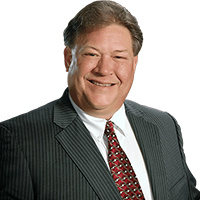Minden Misdemeanor Lawyer, Louisiana
Sponsored Law Firm
-
 x
x

Click For More Info:
-
John D & Eric G Johnson Law Firm, LLC
415 Main St Minden, LA 71055» view mapCriminal Defense and Accident & Injury Fighting for You When You Need It the Most
At the John D. & Eric G. Johnson Law Firm, LLC, attorney Eric Johnson is renowned for his handling of cases throughout Minden and north Louisiana.
800-768-5820
Not enough matches for Minden Misdemeanor lawyer.
Below are all Minden Criminal lawyers.
Eric Gerard Johnson
✓ VERIFIEDAt the John D. & Eric G. Johnson Law Firm, LLC, attorney Eric Johnson is renowned for his handling of criminal cases throughout Minden and north Louis... (more)
Mark Daniel Frederick
✓ VERIFIEDMark D. Frederick has over 20 years of legal experience, enabling him to handle the demands of your case regardless of the complexities involved. As y... (more)
Thomas A. Bordelon
✓ VERIFIEDTHOMAS A. BORDELON was born in San Antonio, Texas on December 6, 1959. Mr. Bordelon graduated cum laude from Louisiana State University at Shreveport... (more)
J. Dhu Thompson
✓ VERIFIEDDhu Thompson is a criminal defense, family law, and catastrophic injury lawyer in Louisiana. After graduating from Southern University Law School in 2... (more)
J Ransdell Keene
✓ VERIFIEDPracticing law for more than 40 years, J. Ransdell Keene is a trusted legal ally for clients throughout the Shreveport area and across Louisiana. As a... (more)
James C. McMichael
Christopher Clint Broughton
FREE CONSULTATION
CONTACT Eric Johnson Minden, LA
Eric Johnson Minden, LA Practice AreasExpertise
Practice AreasExpertise





